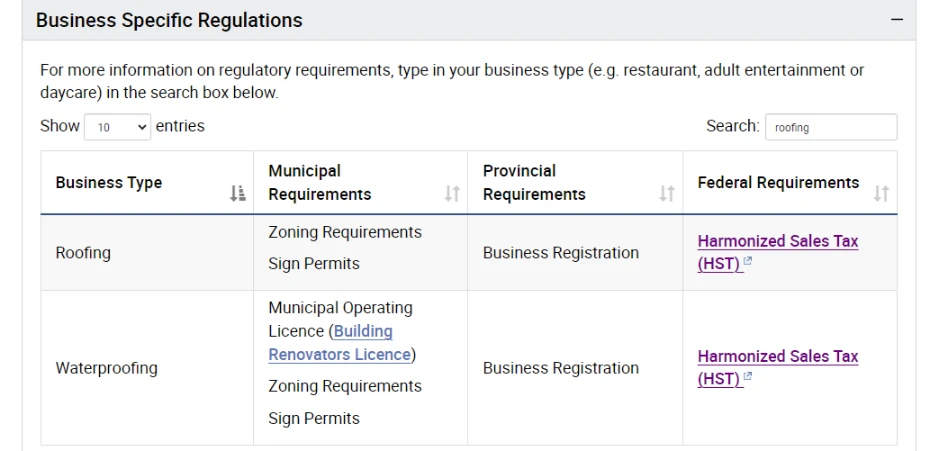Starting a roofing business in Ontario can be both rewarding and profitable if done correctly. This article delves into the essentials of setting up a roofing enterprise, ensuring compliance with regulations, and paving the way for successful operations.
Table of Contents
- Introduction
- Tapping into the Roofing Industry
- Business Planning and Market Research
- Legal Requirements and Licensing
- Building Your Brand and Securing Customers
- Operations Management
- Conclusion
Tapping into the Roofing Industry

The demand for roofing services is perennial. Every year, homes across Ontario require new roofs, repairs, and maintenance due to natural wear and tear, as well as environmental elements. If you have expertise in roofing or a keen interest in starting a business in this field, knowing where to begin and how to thrive is crucial. This article outlines the steps to launch your roofing business in Ontario, covering everything from legal compliance to market penetration and sustainability.
Step 1: Business Planning and Market Research
Understanding the Market
Before setting foot in the entrepreneurial world, it’s imperative to grasp the roofing market’s dynamics in Ontario:
- Economic indicators: Analyze the current economic climate which impacts housing markets and new constructions.
- Target market: Identify whether your primary clients will be residential, commercial, or a mix of both.
- Competition: Research existing roofing businesses in your target area to understand their services, pricing, and customer base. Here is the top 10 roofing companies in Toronto.
Business Plan Development
A robust business plan is your roadmap to success. Here’s what it should encompass:
- Business model: Whether you’ll operate on contract basis, offer full-service roofing, or specialize in specific types such as eco-friendly roofs.
- Financial planning: Budgeting, expected startup costs, pricing strategies, and financial projections.
- Marketing strategy: How you plan to attract and retain customers.
- Operational strategy: Day-to-day running of the business, supplier relations, staffing, and logistics.
Legal Requirements and Licensing
To legally operate a roofing business in Ontario, you must navigate through several legalities:
- Business registration: Register your business as a legal entity—be it a sole proprietorship, partnership, or corporation.
- Licenses and permits: Obtain the necessary municipal and provincial licenses, which may differ depending on your location in Ontario.
- Liability insurance: Essential for covering any damages or injuries at work.
- Worker’s compensation: Required if you will hire employees.
- Health and safety training: Ensure compliance with Ontario’s health and safety laws to protect you and your workforce on-site.
You can go to this link and learn more about business regulations, licenses and permits to start business in Toronto!

Step 3: Building Your Brand and Securing Customers
Crafting a Strong Brand Identity
Your brand distinguishes you from competitors and builds trust with customers. Elements include:
- Logo and design: Professional and recognizable branding across all business materials.
- Unique selling proposition (USP): What makes your roofing service stand out? Maybe it’s your sustainable materials, exceptional craftsmanship, or unmatched warranty terms.
Marketing Strategies
Employ a mix of traditional and digital marketing techniques to reach your audience:
- Website and SEO: Develop a professional website optimized for search engines to attract online traffic.
- Social media marketing: Engage with potential customers on platforms like Facebook and Instagram.
- Local advertising: Consider radio spots, local newspaper ads, or sponsoring community events.
- Referral programs: Encourage word-of-mouth advertising by offering incentives for referrals.
Operations Management
Streamline your operations to deliver efficient and high-quality roofing services:
- Supplier relations: Build strong relationships with suppliers for better pricing and material availability.
- Staff training: Regular training on the latest roofing techniques and safety protocols.
- Quality control: Implement checks to ensure every roofing job meets high standards.
- Project Management: Utilize software to manage and automate workflows from the very beginning. This will add more brand value to your company and reduce administrative work stress. You can use ServiceDeck, as it is free for small companies and easy to use.
Conclusion: Paving the Way for Long-Term Success
Starting a roofing business in Ontario involves crucial steps from understanding your market and creating a detailed business plan to complying with legal requirements and executing effective marketing strategies. Remember to build a responsive business that adapts to market needs and focuses on delivering quality services. Entrepreneurship in the roofing industry holds promising opportunities—careful planning and execution will pave your path to success.
Are you ready to build a thriving roofing business that stands out in Ontario’s bustling market? Begin your journey today, and lay the foundation for a prosperous future!
What our clients say
Take the next step
Explore ServiceDeck or book a demo to see how it can streamline your business and answer your questions.
Create your profile
Sign up and tell us a bit about your business.
Book your setup call
Schedule a quick onboarding session with our team.






One Comment